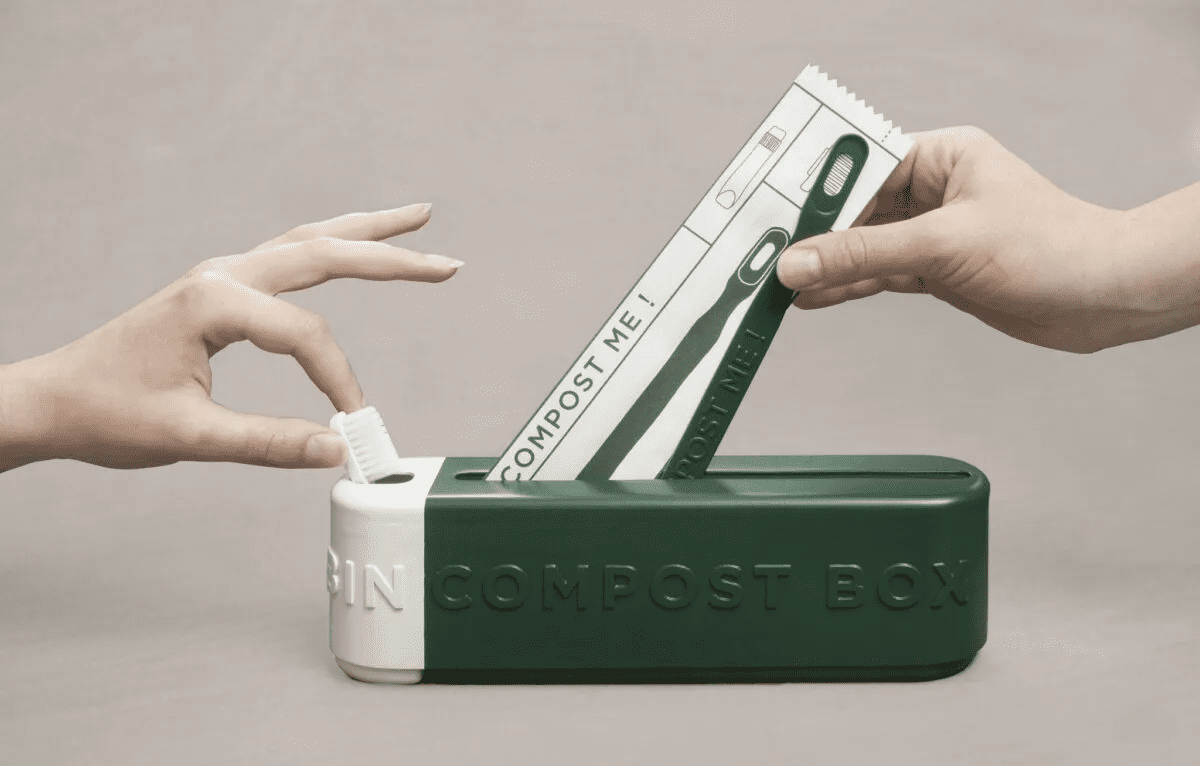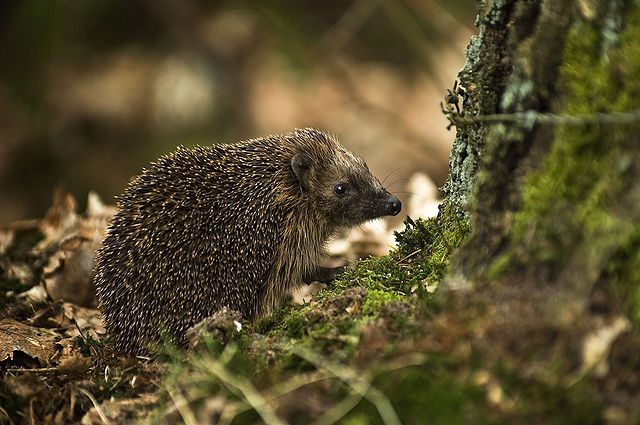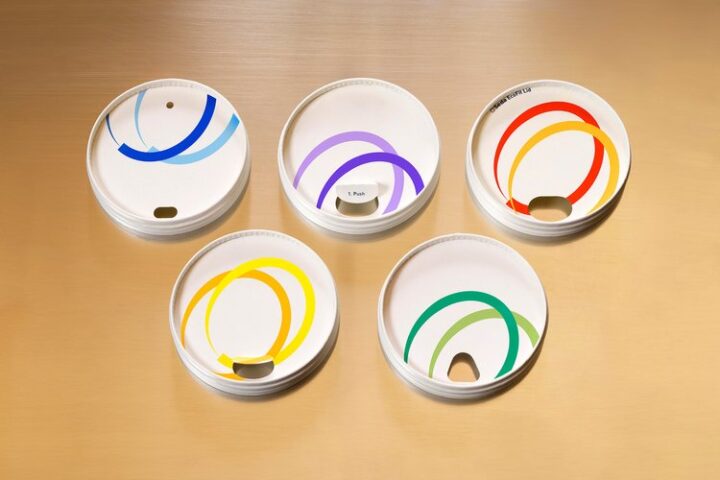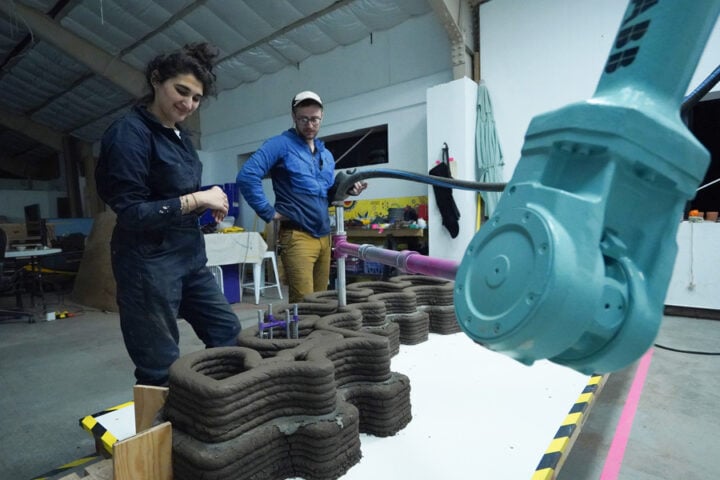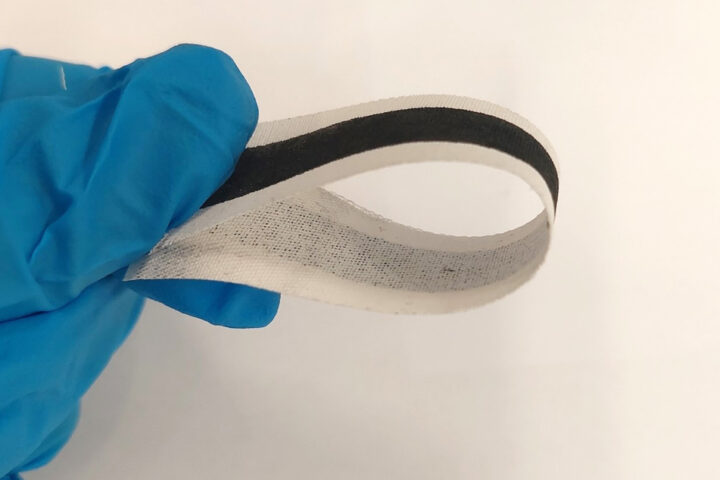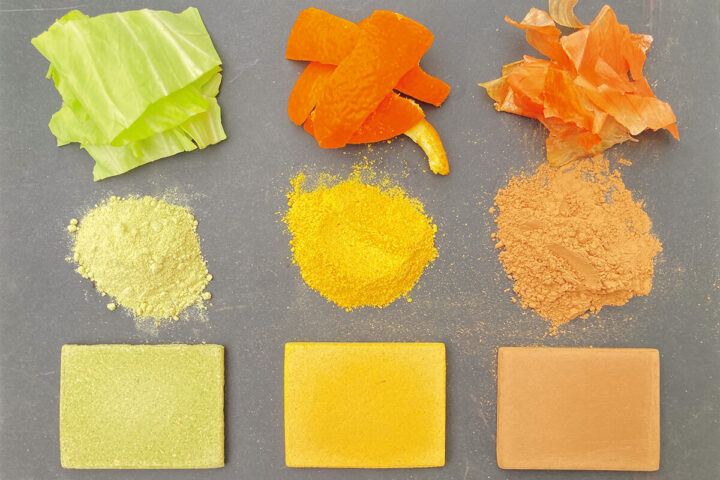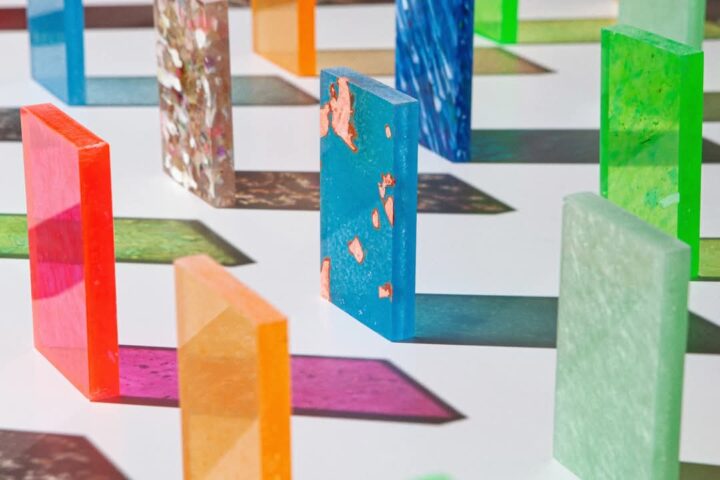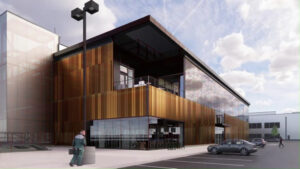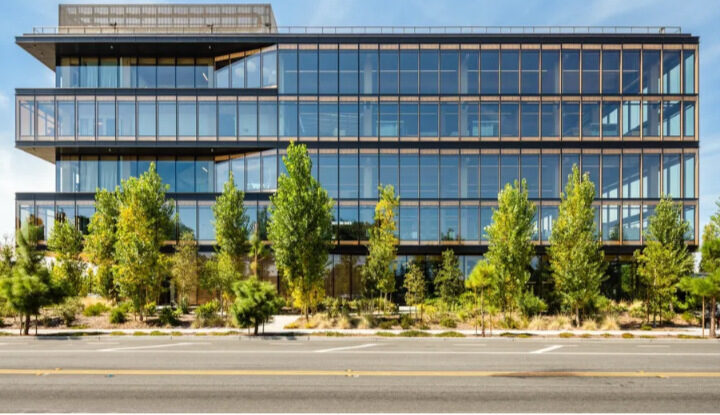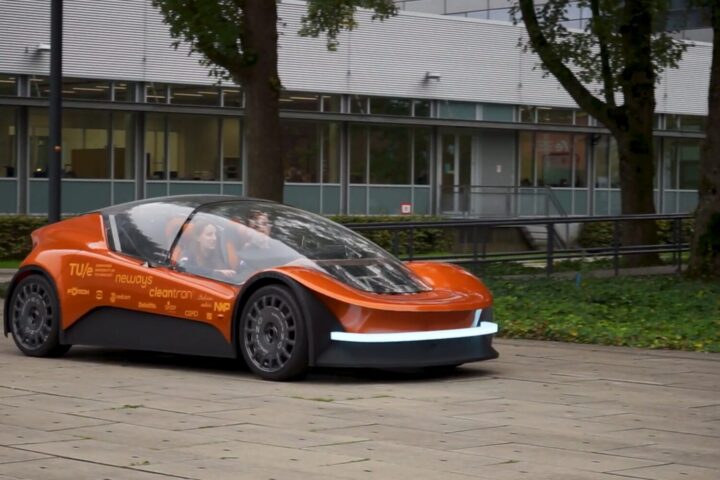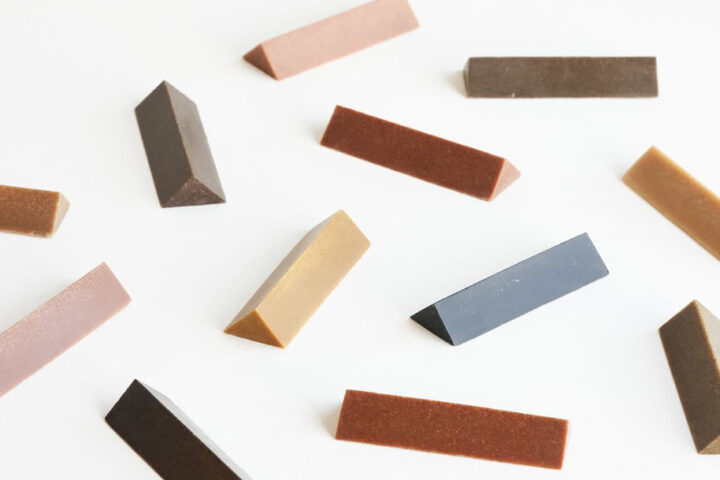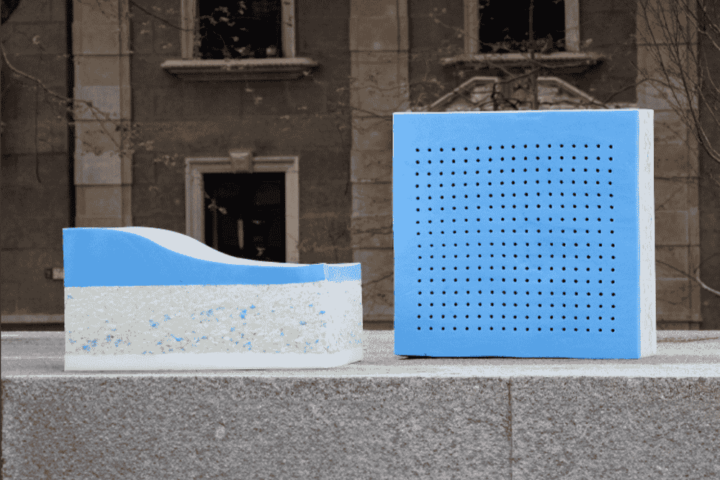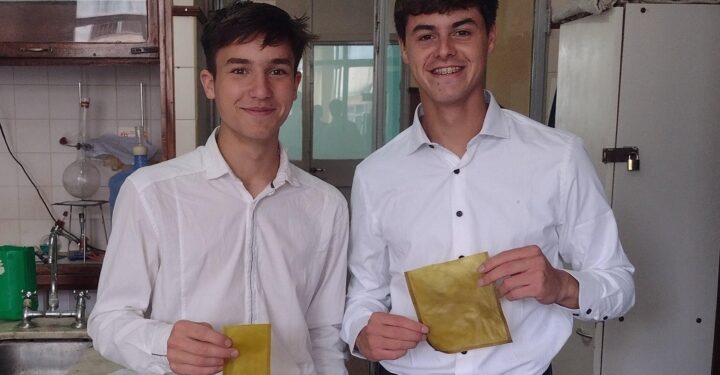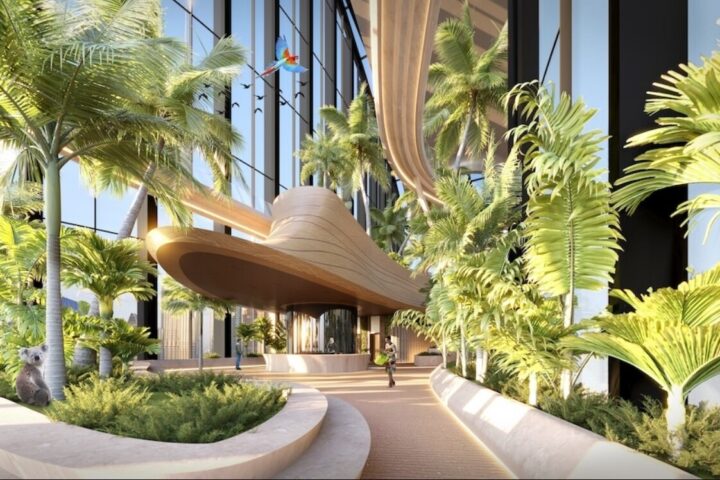Three individuals, Eléa, Lola, and James, currently run the Swedish design company OnMateria. Sustainability, product usability, and the desire to solve problems via design are the common threads that bind the three members of OnMateria together. Green Box is a complete amenity package that is part of a circular business strategy. For now the Green box is being aimed towards the hospitality industry where sanitary kits are essential. Each room is provided a disposable bin along with the accessory package. Visitors will categorize objects after use into biodegradable and non-compostable categories, raising knowledge of various new waste streams.
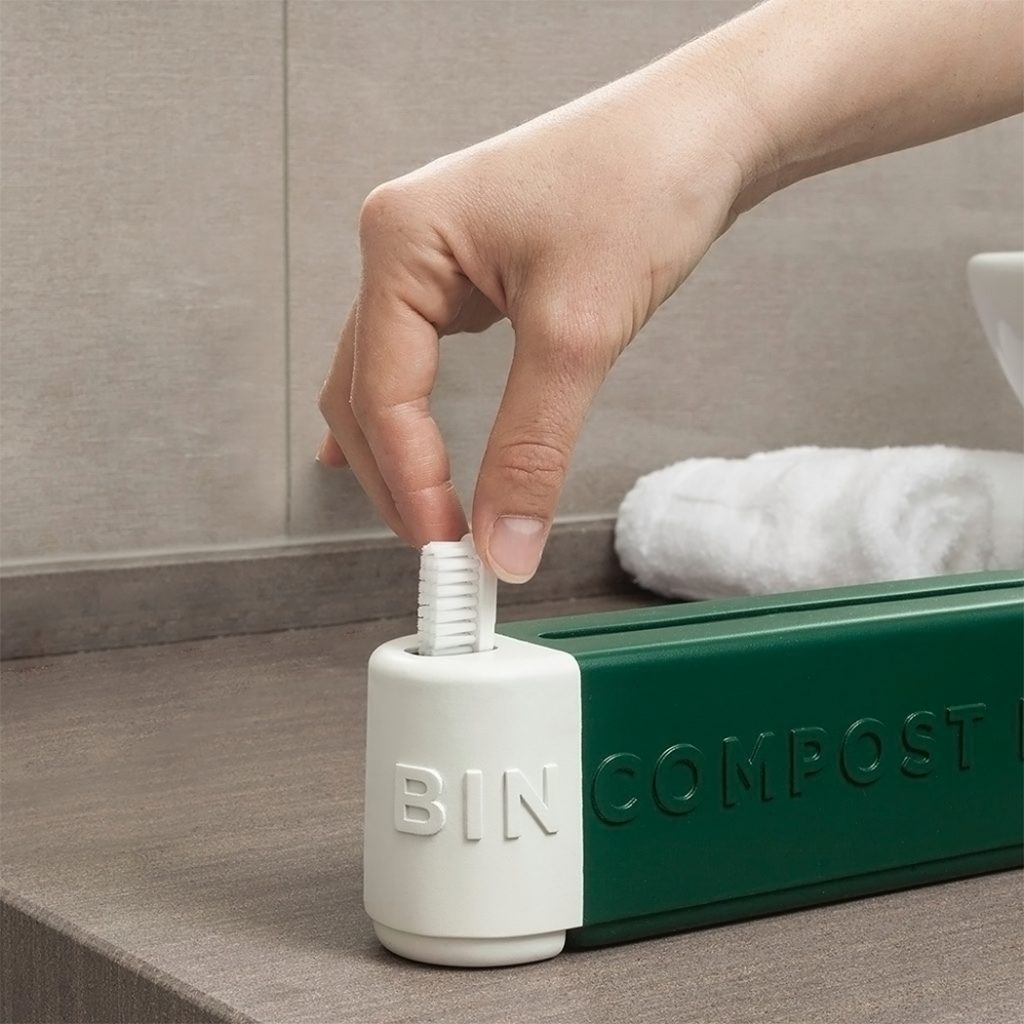
The Green Box amenity set comes with a trash can, comb, razor, Q-tips, and toothbrush. This bin has two sides, one white with a small circular aperture labeled “Bin” and the other green with a long, thin opening designated as a compost box. You would frequently use these amenities, and when you are through, you would separate the white modular pieces, such as the toothbrush head and razor head, and put them into the white trash bin. The green handles would go into the green compost bin. The user will comprehend that various plastics require various disposal methods and that even seemingly unimportant items like toothbrushes and Q-tips can contribute to plastic pollution. Proper plastic disposal can result in less pollution and more effective waste management.


The White components will be disposed of with the general garbage because they are meant to be segregated and not composted. In comparison, the green products that can be composted will be handled in a commercial composting facility together with the rest of the hotel’s organic waste. The green components, made of recycled PLA and plant-based colors, will decompose into biogas and soil at an industrial anaerobic digestion facility after ten days. A regular LED light bulb may be run for a day on the energy generated by a kit. The remaining organic material might serve as a fertilizer for the soil.
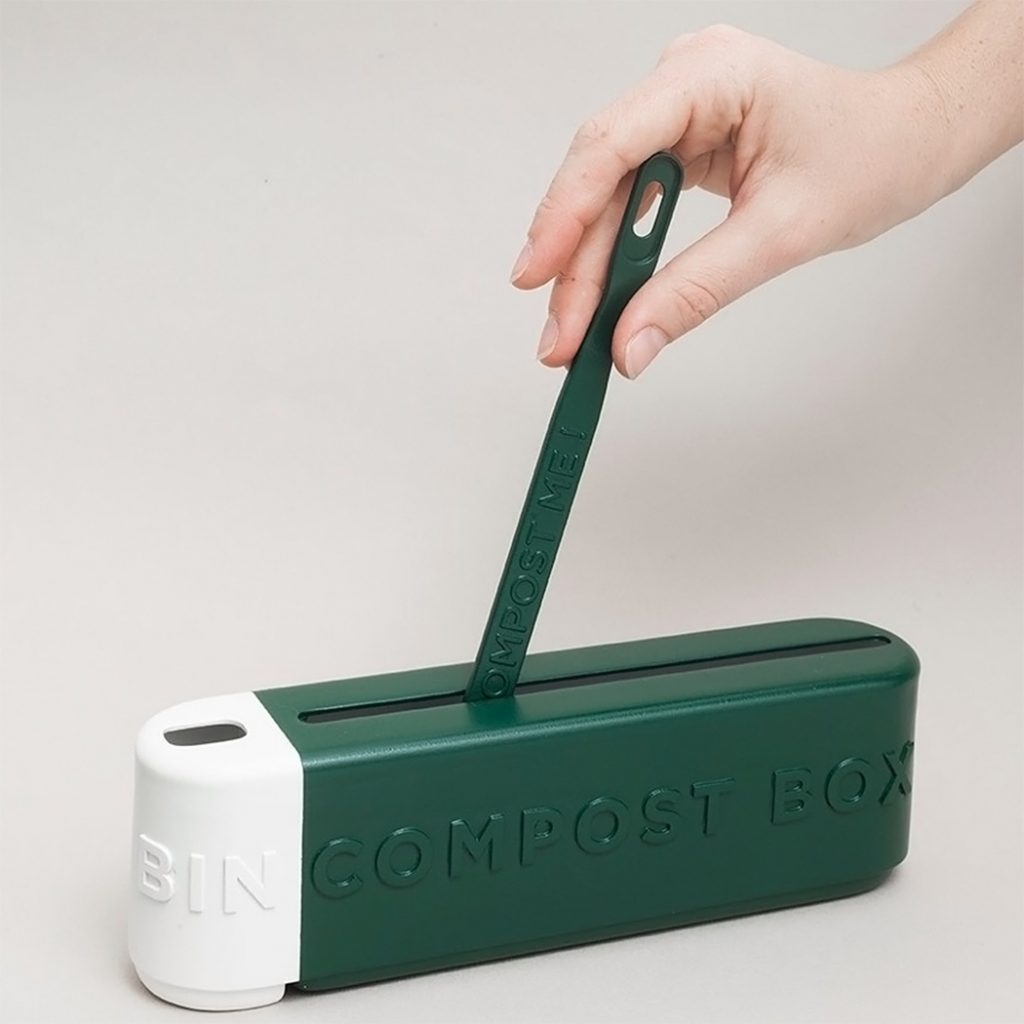
Hotel businesses discard tens of millions of amenity kits annually. After COVID-19, the hotel sector can reinvent itself, and enterprises should put sustainability at the forefront of their operations. As Green Box demonstrates, major adjustments are unnecessary to make a significant difference. An amenity package, albeit modest, may make a difference.
The first place at the Make Me! Competition during the ód Design Festival 2020, finalist for the “Industrial Design” category at the Ro Plastic Prize 2020, a finalist for the No Waste Challenge by What Design Can Do 2021, and a finalist for the Distributed Design Awards 2021 are just a few of the honors this new innovative design has received.
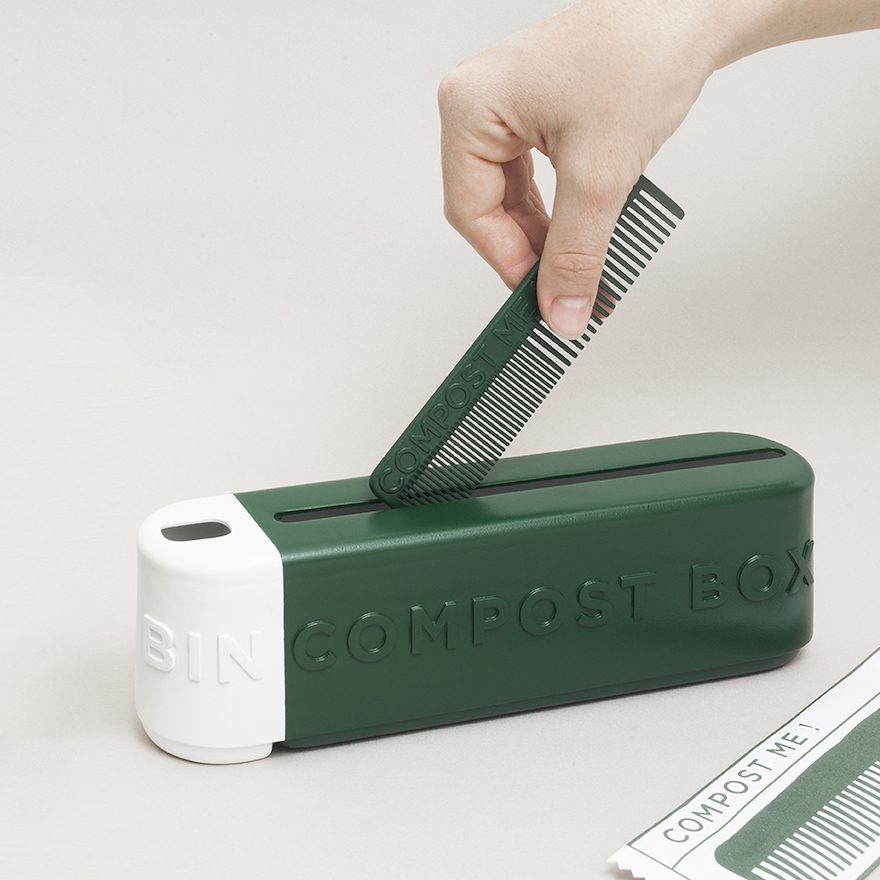
The Green Box amenity set comes with a trash can, comb, razor, Q-tips, and toothbrush. This bin has two sides, one white with a small circular aperture labeled “Bin” and the other green with a long, thin opening designated as a compost box. You would frequently use these amenities, and when you are through, you would separate the white modular pieces, such as the toothbrush head and razor head, and put them into the white trash bin, while the green handles would go into the green compost bin. The user will comprehend that various plastics require various disposal methods and that even seemingly unimportant items like toothbrushes and Q-tips can contribute to plastic pollution. Proper plastic disposal can result in less pollution and more effective waste management.
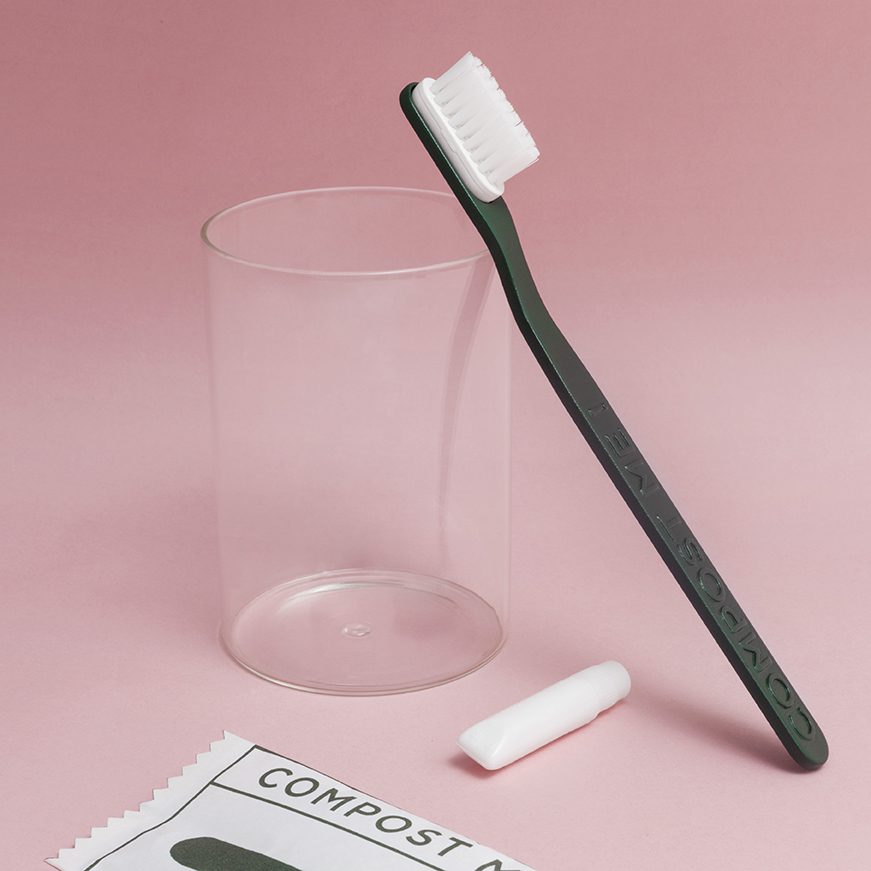
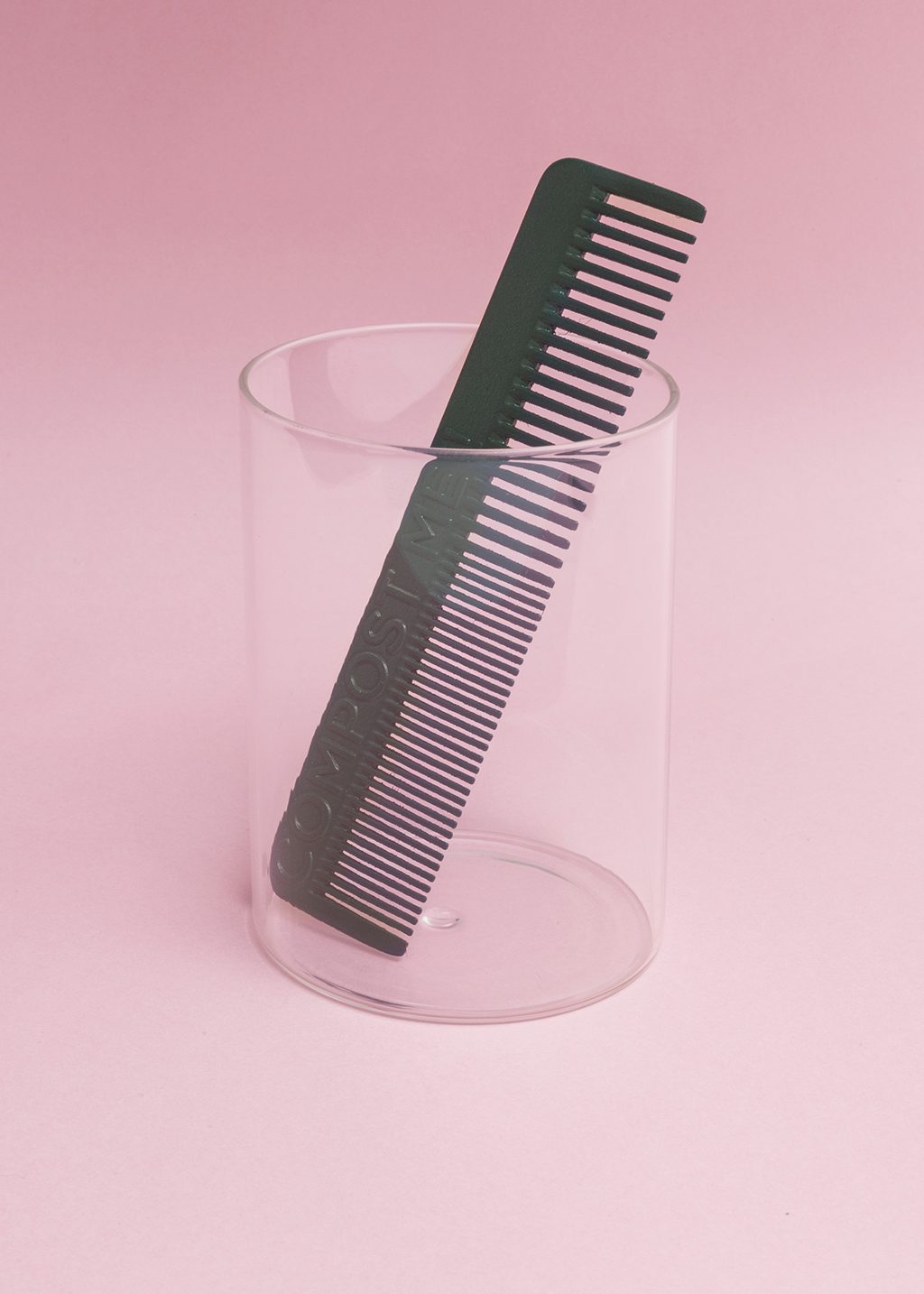
The White components will be disposed of with the general garbage because they are meant to be segregated and not composted. In comparison, the green products that can be composted will be handled in a commercial composting facility together with the rest of the hotel’s organic waste. The green components, made of recycled PLA and plant-based colors, will decompose into biogas and soil at an industrial anaerobic digestion facility after ten days. A regular LED light bulb may be run for a day on the energy generated by a kit. The remaining organic material might serve as a fertilizer for the soil.
Hotel businesses discard tens of millions of amenity kits annually. After COVID-19, the hotel sector can reinvent itself, and enterprises should put sustainability at the forefront of their operations. As Green Box demonstrates, major adjustments are unnecessary to make a significant difference. An amenity package, albeit modest, may make a difference.


The first place at the Make Me! Competition during the ód Design Festival 2020, finalist for the “Industrial Design” category at the Ro Plastic Prize 2020, a finalist for the No Waste Challenge by What Design Can Do 2021, and a finalist for the Distributed Design Awards 2021 are just a few of the honors this new innovative design has received.
